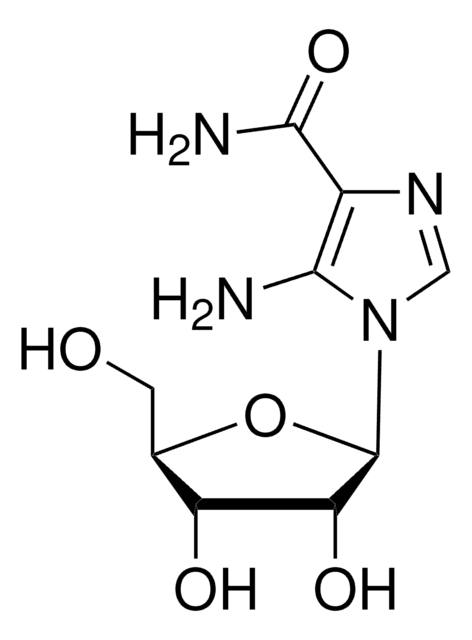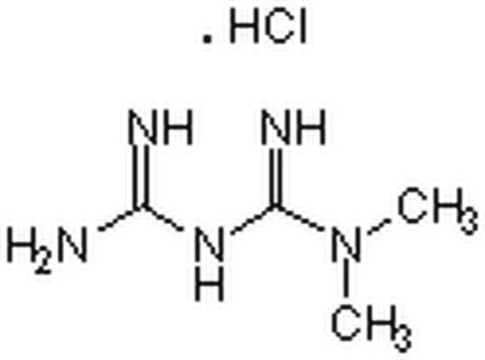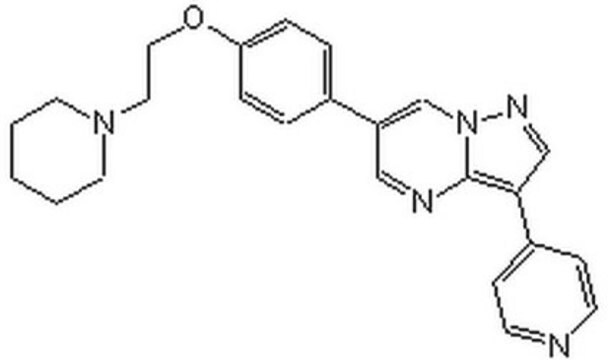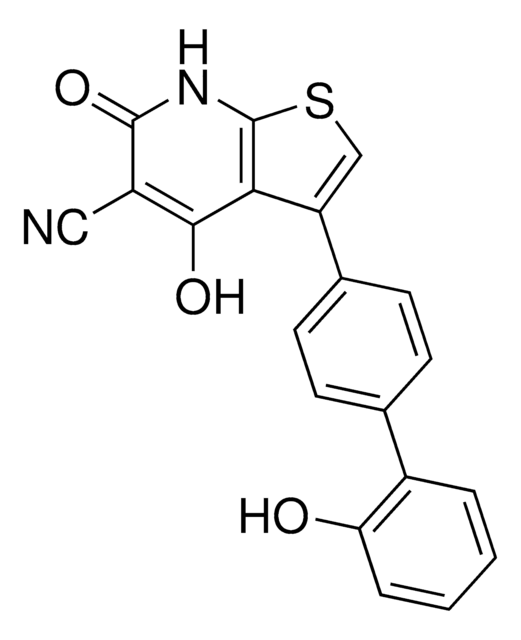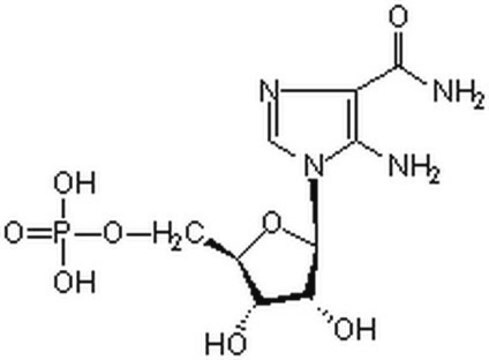123040
AICA-Riboside
AICA-Riboside, CAS 2627-69-2, is a cell-permeable nucleoside compound whose phosphorylated metabolite activates AMPK and acts as a regulator of de novo purine synthesis.
Synonyme(s) :
AICA-Riboside, Acadesine, AICAr, 5-Aminoimidazole-4-carboxamide-1-β-riboside, Z-Riboside, AMPK Signaling Activator II
About This Item
Produits recommandés
Niveau de qualité
Pureté
≥98% (HPLC)
Forme
solid
Fabricant/nom de marque
Calbiochem®
Conditions de stockage
OK to freeze
Couleur
white to brown
Solubilité
methanol: 10 mg/mL
water: soluble
Conditions d'expédition
ambient
Température de stockage
2-8°C
InChI
1S/C9H14N4O5/c10-7-4(8(11)17)12-2-13(7)9-6(16)5(15)3(1-14)18-9/h2-3,5-6,9,14-16H,1,10H2,(H2,11,17)/t3-,5-,6-,9-/m1/s1
Clé InChI
RTRQQBHATOEIAF-UUOKFMHZSA-N
Description générale
Actions biochimiques/physiologiques
Adenosine monophosphate-activated protein kinase (AMPK)
Conditionnement
Avertissement
Notes préparatoires
Reconstitution
Autres remarques
Culmsee, C., et al. 2001. J. Mol. Neurosci.17, 45.
Muoio, D.M., et al. 1999. Biochem. J.338, 783.
Hayashi, T., et al. 1998. Diabetes47, 1369.
Corton, J.M., et al. 1995. Eur. J. Biochem.229, 558.
Informations légales
Code de la classe de stockage
11 - Combustible Solids
Classe de danger pour l'eau (WGK)
WGK 3
Certificats d'analyse (COA)
Recherchez un Certificats d'analyse (COA) en saisissant le numéro de lot du produit. Les numéros de lot figurent sur l'étiquette du produit après les mots "Lot" ou "Batch".
Déjà en possession de ce produit ?
Retrouvez la documentation relative aux produits que vous avez récemment achetés dans la Bibliothèque de documents.
Notre équipe de scientifiques dispose d'une expérience dans tous les secteurs de la recherche, notamment en sciences de la vie, science des matériaux, synthèse chimique, chromatographie, analyse et dans de nombreux autres domaines..
Contacter notre Service technique